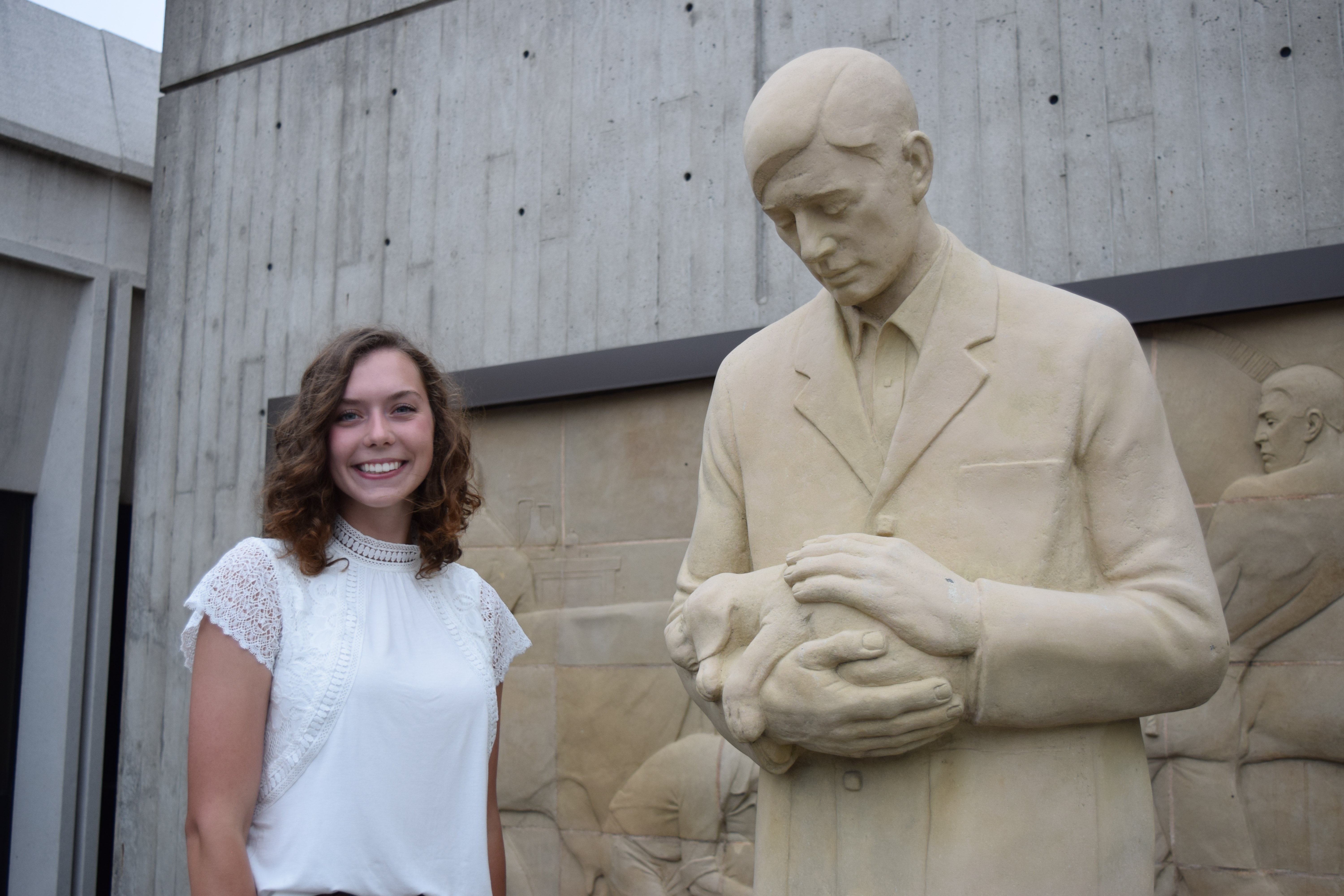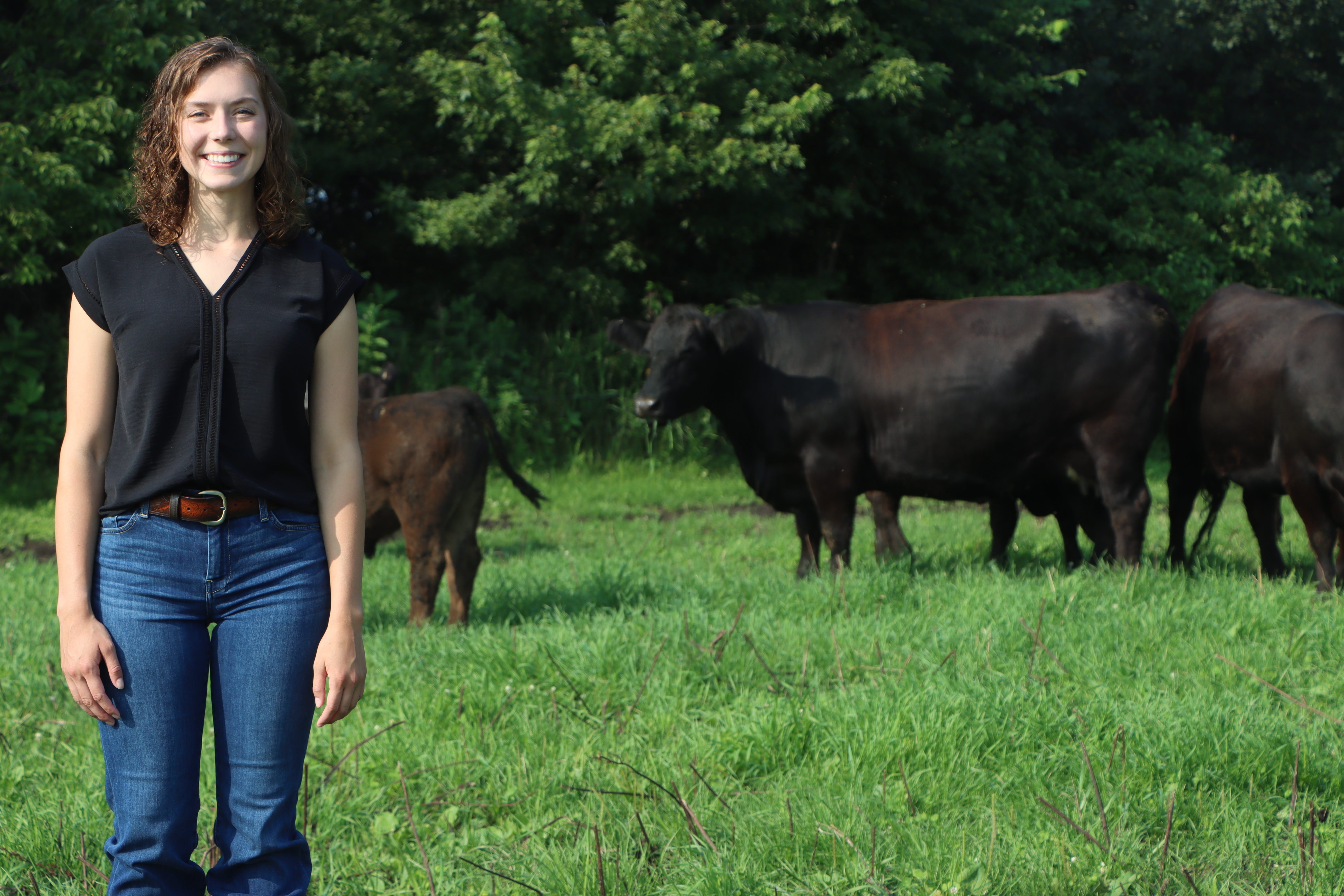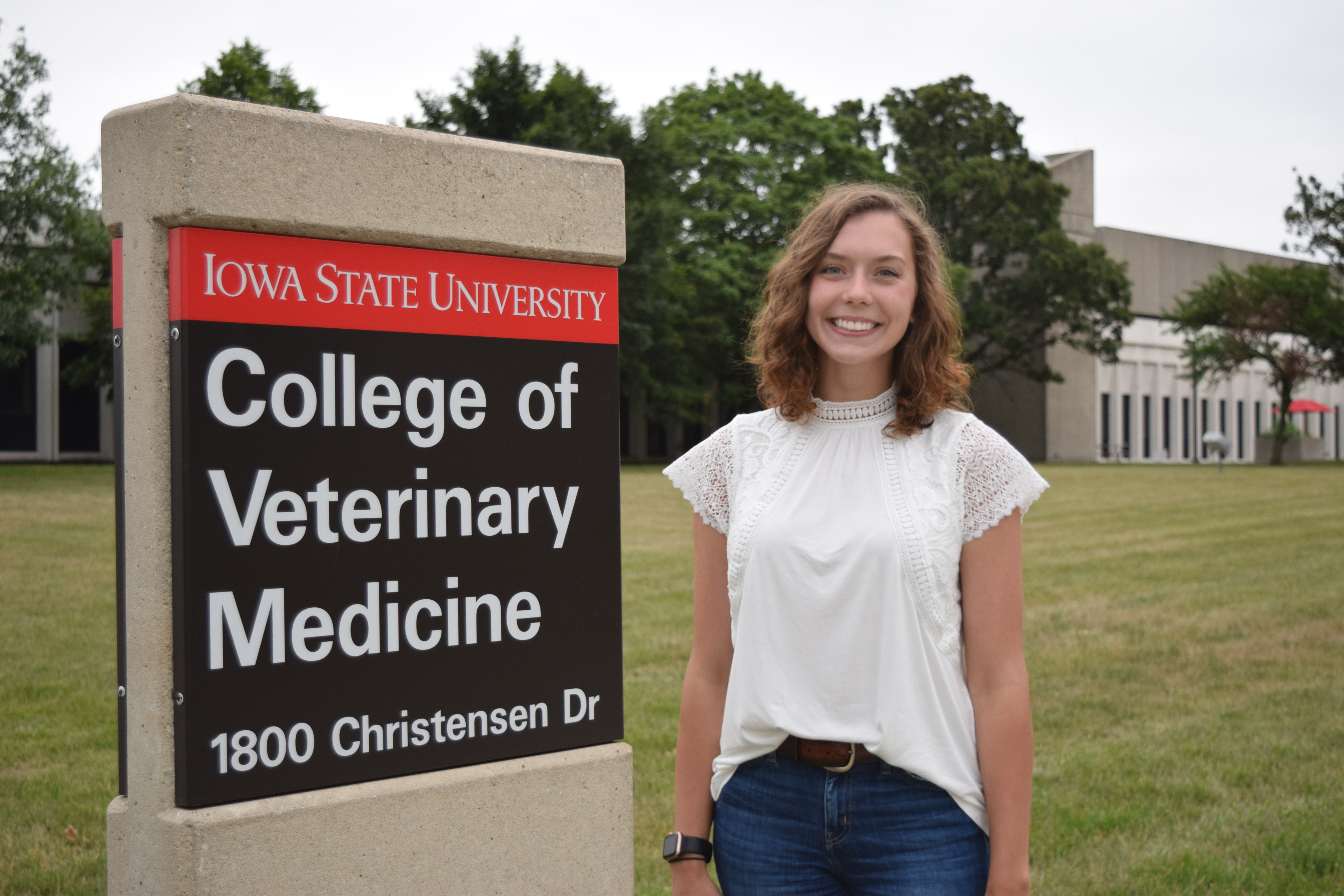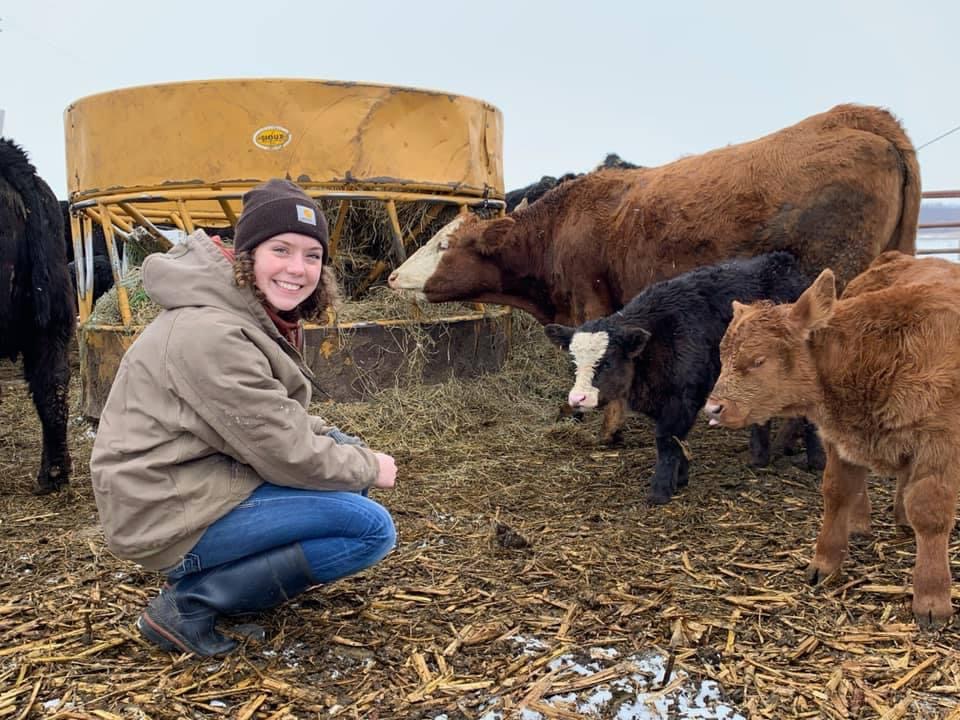Hope Dohlman
Animal care is at the heart of everything the beef community does. As a beef industry, we want to care for you and the products you consume.
By Merriam-Webster’s definition, care is the responsibility for or attention to health, well-being, and safety of someone or something. Care looks different for everyone. It may look like putting your newborn child to sleep for the night or heading to the nursing home to care for your great grandma who is enjoying a game of bingo. Care may also look like organized chaos while getting the oldest child to softball practice in the next 15 minutes, the middle child to a golf meet, and the youngest to the pantry for a snack.
Now envision what care might look like for those who own an animal. This might be Max, the dog, needing love and attention. Animal care may be taking the cat to the local veterinarian’s office for a regular check-up or the routine chore of feeding the fish and cleaning it’s tank out.
Hope Dohlman is a third-generation beef farmer from Cresco, Iowa. The oldest of 15 grandchildren on the Dohlman side of the family, she has plans to continue her family’s “hobby herd” of Simmental cattle, which they exhibit regularly at the Howard County Fair and Iowa State Fair open Simmental show. However, animal care takes a different form for Hope. In the Fall of 2021, she began her adventure as a veterinary student in the College of Veterinary Medicine at Iowa State University.
Hope’s philosophy was that every break she had in high school and as an undergraduate student at Iowa State needed to be filled with an opportunity for growth. This did not necessarily have to be something related to veterinary work, but she believed to be an understanding and caring veterinarian, she felt she had to start from the bottom.
For example, one summer, in addition to helping her brother with his fair calves, Hope worked for Smithfield Foods. She had the opportunity, initially, to apply for the veterinarian internship, but chose the pork production internship instead. Why? Because she cares. She knows that to properly care for animals as a veterinarian, she needs to experience what farmers and ranchers encounter every day.
Hope also spent some time working at a local bakery. Customer service, treating everyone with respect, and problem-solving were all skills Hope developed. These skills are now top-of-mind as she enters the veterinary field.
Hope was very active in clubs and organizations throughout high school and into college. She became a natural leader through a multitude of officer roles and leadership positions. Serving two terms on the State 4-H Council, being elected by her peers to serve on the College of Agriculture and Life Sciences Council, and volunteering in her community and church are just a few of the activities reflected in her extensive resume. Another pillar of care, Hope recognizes she wants to give back to her community and serve others 一 in the human form and animal form.
“The vet industry is more than animal health,” Hope says. It’s relationships with people, which Hope has cultivated through her organizational involvement. It’s also mentorship with others. Hope started piano lessons as a first grader. After her other families noticed her dedication to crafting an art, Hope was approached to start teaching piano to a young group of students during her freshman year of high school. She also worked with many young children throughout her time in 4-H and as the Howard County Fair Queen. In the vet industry, mentorship comes in the form of information sharing. Teaching and explaining correct animal practices creates an environment for producers to learn and consumers to hear how farmers and ranchers care about their animals. This, in turn, benefits all three components of the food chain: animal, farmer/rancher, and the consumer [you].
The foundation for animal care, specifically in the beef industry, starts with a baby calf needing food. A veterinarian’s job, like Hope’s someday, is to ensure the calf stays healthy throughout it’s life, always keeping the end goal in mind: consumers with food on their plate.
Through the national Beef Checkoff, producers have access to the Beef Quality Assurance (BQA) program. BQA is a nationally coordinated, state-implemented program that provides accepted scientific knowledge coupled with common-sense husbandry techniques to raise cattle under optimum management and environmental conditions. BQA was designed for cattlemen and women by cattlemen and women and follows FDA, EPA, and USDA guidelines as well as HACCP principles. The old adage of starting with the end in mind is a perfect depiction of a core value of the beef industry: maintaining healthy and sustainable communities.
“Some things have stayed the same, and that’s okay,” Hope says, “but we need to continue to modernize with the same foundation.” The beef and agriculture industry is no longer Old MacDonald’s farm. Cows still graze on meadows, pigs still play in mud, and big red barns still exist, but the traditional farmer who stands outside the barn with hay in his mouth isn’t always old or a male. The farmer could be a 20-year-old girl, like Hope, who is also the farm’s veterinarian. Educated, caring farmers and ranchers who make up the modern agriculture landscape today want to provide a high-quality, great-tasting product to your dinner plate.
Now, what does animal care look like to you? We hope you picture someone like Hope, who came from a beef operation and who is pursuing her dream as a veterinarian at school. Hope’s an intelligent, young woman with goals to continue her family’s beef operation and mentor the next generation of food consumers and agriculturalists. Most importantly though, we hope you see and picture a steward, like Hope, who genuinely cares for people and animals.
The focus is you. Animal care is at the heart of everything the beef community does. As a beef industry, we want to care for you and the products you consume.
Dohlman Farm
Cresco, Iowa
Cow/Calf Farms
Cows are bred and calves are born and raised every year on cow-calf farms and ranches, spending time grazing on grass pastures within sight of their mothers.



